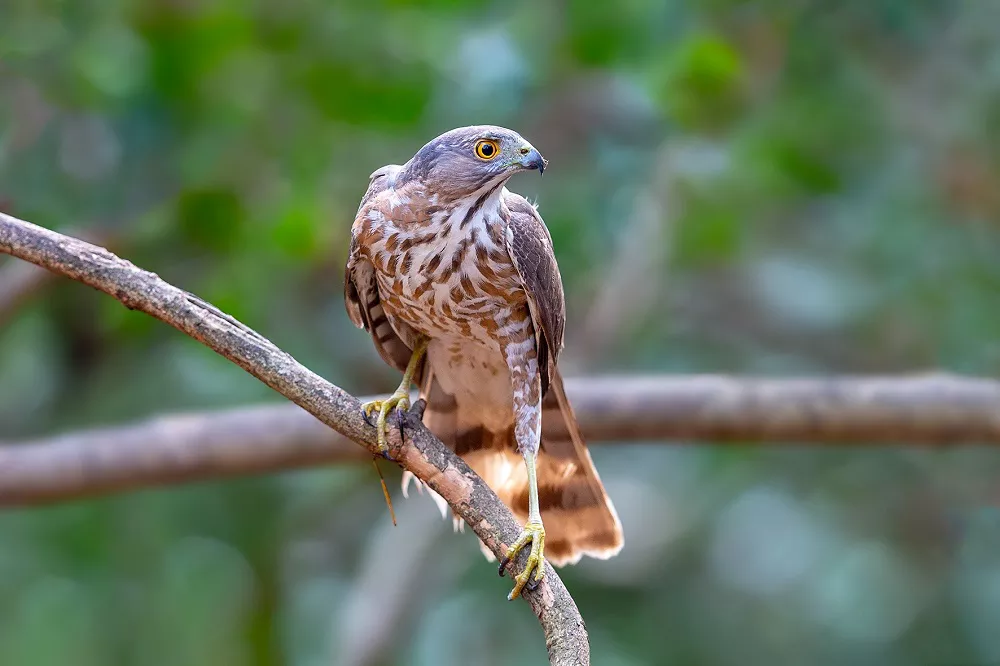Sparrowhawks are small birds of prey that are commonly found in woodland areas, gardens, and parks across the United Kingdom. They are known for their swift and agile flight and their ability to catch small birds and mammals for food. One question that is often asked about sparrowhawks is whether they eat pigeons.
The short answer is yes, sparrowhawks do eat pigeons. Although they are small birds, sparrowhawks are fierce predators and have been known to catch and kill birds that are much larger than themselves. Pigeons are a common prey item for sparrowhawks, particularly in urban areas where they are abundant.
Sparrowhawks are known for their ambush hunting technique, which involves flying low over the ground or through vegetation and surprising their prey from behind. They are able to catch birds in flight by using their sharp talons to grasp onto their prey and then using their sharp beak to deliver a fatal bite to the neck or head.
Pigeons are a popular prey item for sparrowhawks because they are relatively slow flyers and are often found in large flocks, making them an easy target. However, pigeons are also a challenging prey item for sparrowhawks due to their size and strength. Catching a pigeon requires a great deal of skill and agility, and many sparrowhawks are injured or killed during the hunt.
Despite the fact that sparrowhawks do eat pigeons, it is important to remember that they are an important part of the ecosystem and play a vital role in controlling the population of small birds and mammals. Sparrowhawks are themselves preyed upon by larger predators such as foxes, owls, and larger birds of prey, so they must remain vigilant at all times to avoid becoming a meal for another animal.
In conclusion, sparrowhawks are skilled and adaptable predators that are capable of catching a wide variety of prey, including pigeons. Although they are often seen as a nuisance by pigeon fanciers and city dwellers, they are an important part of the natural world and should be respected for their role in maintaining the balance of nature.


 Facebook
Facebook  Instagram
Instagram  Youtube
Youtube 